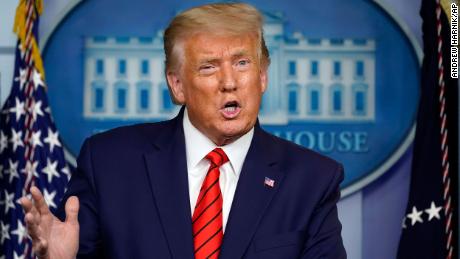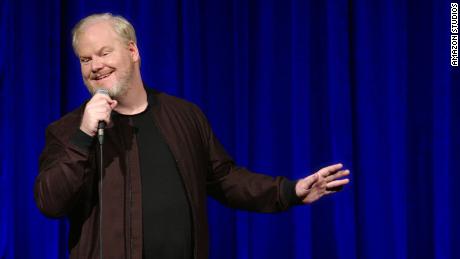Opinion: Why Trump is really going to Kenosha
However he said Monday that he does not plan to meet with the family of the Black man whom an officer shot seven times in the back at point blank range. It is in particular this shooting of Jacob Blake, as his children looked on, that touched off the Kenosha protests in the first place.
Trump’s dark re-election theme, which promotes fear and conflict, is a perfect representation of both his longstanding and deeply negative world view and his lifelong practice of refusing to accept responsibility for any problem. This is the man who said he has never asked God to forgive him for anything. Who said, “We don’t make mistakes.” And who declared, “I don’t take responsibility at all” for the federal government’s tragically bad response to the coronavirus pandemic, which has now claimed more than 183,000 lives.
Trump’s shirking reflex suggests a man unfit for office. President Harry Truman famously said, “The buck stops here,” with him. He assumed responsibility, and did his job.
Anyone who has read, or read of psychologist Mary Trump’s book about her uncle the President would know that, according to her, his nihilism arose out of the profound neglect he experienced as a little boy in Queens in a family where his often-ill mother was unavailable and his father demanded that even little boys “be tough at all costs.”
In this setting, wrote Mary Trump, “lying is okay, admitting you’re wrong or apologizing is weakness.” His task became to “convince other people he was better than he actually was.”
A child required to be so tough and perfect, and who is also deprived of the steady support of comforting parents, would know that deep inside, he really wasn’t so tough. What child is? Instead, children in this position are more likely to become the kind of fearful people who build the kind of defenses exhibited by bullies and braggarts.
As adults some seek ever-greater positions of power to prove to themselves that they are every bit as strong as they were supposed to be. Such a person, given the resources of, say, an immensely wealthy family and a business in which he holds all the power, might create a world of his own where he is surrounded by people who praise and obey him (and certainly don’t question his dominance) and serve as his allies in his paranoid conflicts with others.
Paranoia is a quality that Trump copped to long ago. “Be paranoid” was among his tips for success in his 1997 book called “Trump: The Art of the Comeback.” Given his penchant for seeing enemies and conspiracies everywhere — Deep State, Fake News, voter fraud — his fearfulness only seems to be getting worse.
The problem for Americans is that the boy from Queens grew up to assume the power of the presidency. He gradually drove away all those who failed to support him and now, surrounded by enablers, he has the power to impose his dark vision upon us.
Faced with the national protests that arose after the police killing of a Black man named George Floyd in Minneapolis, he seized upon sporadic — and limited — bouts of protests that sometimes included pockets of rioting and property destruction to declare the whole country as under threat.
He then abused his bully pulpit to foment anger and fear among his core supporters, who have begun to mount forceful shows of their own views.
This is the America of Trump’s twisted imagination. It is the America he seems determined to make all of us occupy. And it is the America for which he is ultimately, and unavoidably, responsible.
![]()






